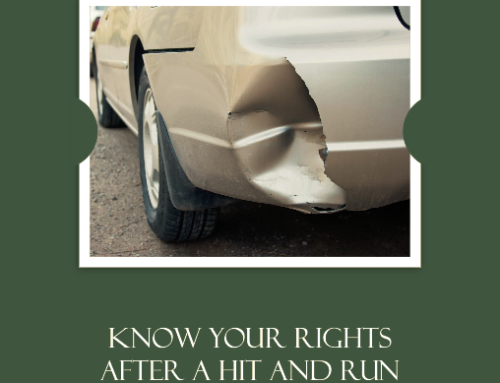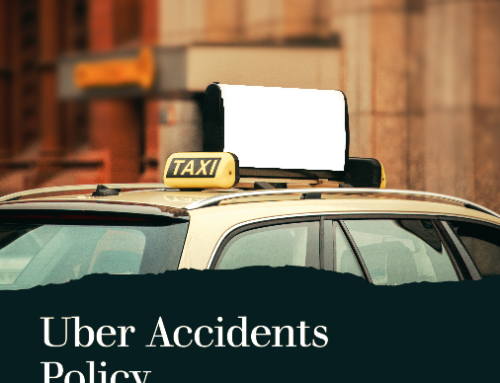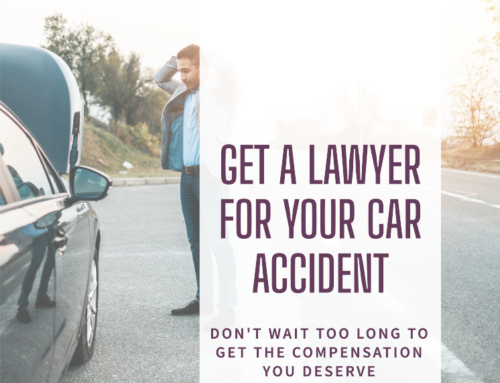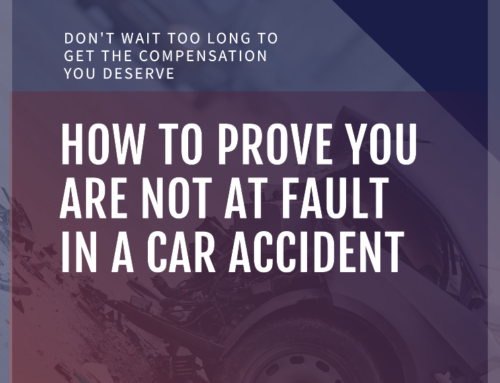
Getting involved in a car accident can be a stressful and overwhelming experience. However, depending on the circumstances, negotiating a settlement without a lawyer is entirely possible. You can effectively negotiate with the insurance company by understanding the process and gathering relevant evidence. In this article, we will explore the benefits of negotiating a car accident settlement without legal representation, discuss methods to gather evidence, provide guidance on contacting the insurance company, offer tips for calculating a fair settlement amount, and outline the next steps if negotiations fail.
- Legal rights when negotiating settlements
- Can I negotiate a car accident settlement on my own?
- What are the benefits of negotiating a settlement without a lawyer?
- How do I gather evidence to support my negotiation?
- Should I contact the insurance company directly?
- Factors to consider when calculating a fair settlement amount
- What if the insurance company refuses to negotiate?
- Can I still hire a lawyer if negotiations fail?
Legal rights when negotiating settlements
First and foremost, you have the right to be treated fairly and respectfully. When negotiating a settlement, both parties should engage in good-faith discussions. The insurance company should consider your claims seriously and provide reasonable responses. They should not engage in deceptive practices or take advantage of your situation.
You also have the right to present your case and evidence. It’s important to gather all the necessary documentation, such as medical records, accident reports, and witness statements, to support your claims. During negotiations, you can present this evidence and make persuasive arguments for the compensation you deserve. Remember, evidence plays a crucial role in establishing the strength of your case.
Another important right is the right to privacy. Your personal information should be handled with care and kept confidential. The insurance company should not disclose your private information to unauthorized parties without your consent. Protecting your privacy is an important aspect of the negotiation process.
Can I negotiate a car accident settlement on my own?
One common question that arises after a car accident is whether you can negotiate a settlement without the help of a lawyer. The answer is yes, but it depends on the complexity of the case and your comfort level with the negotiation process. In straightforward cases where liability is clear and injuries are minor, negotiating on your own can save you time and money.
What are the benefits of negotiating a settlement without a lawyer?
There are several advantages to negotiating a car accident settlement without legal representation. Firstly, you retain complete control over the negotiation process. You can directly communicate with the insurance company and decide based on your best interests. Secondly, by bypassing legal fees, you can potentially receive a larger portion of the settlement. Lawyers typically charge a percentage of the settlement amount as their fee, reducing your final payout. Lastly, negotiating without a lawyer may result in a faster resolution. Lawyers often have busy schedules, and their involvement can prolong the settlement process. By taking charge of negotiations yourself, you can expedite the resolution.
How do I gather evidence to support my negotiation?
Take out your phone or camera and start snapping some photos. Capture clear shots of the vehicles involved. The damage sustained and any visible injuries. These pictures will serve as visual evidence and help paint a picture of what happened.
But it doesn’t stop there. You’ll also want to get your hands on some important documents. Make sure to obtain copies of the police report. This report contains valuable information about the accident, including statements from the parties involved and any witnesses. It’s like a treasure trove of evidence.
Speaking of witnesses, if any were present at the scene, try to gather their statements. Their unbiased accounts can be crucial in supporting your version of events. So, don’t hesitate to contact them and politely ask for their perspective.
Now, let’s not forget about your records. Collect all your medical documents related to the accident. This includes doctor’s reports, hospital bills, prescription receipts, and other paperwork showing the extent of your injuries and the treatment you’ve received. These documents provide solid evidence of the physical and financial impact the accident has had on you.
Should I contact the insurance company directly?
Once you have gathered the necessary evidence, it is important to contact the insurance company directly to initiate the negotiation process. Remember to be prepared and organized before making the call. Take notes on the details of the accident and familiarize yourself with your insurance policy, as well as the policies of any other parties involved. Clearly explain the circumstances of the accident, present your evidence, and assert your desire to negotiate a fair settlement. Be concise, respectful, and firm in your communication. The insurance company will likely assign an adjuster to handle your case, so ensure you have their contact information for future discussions.
Factors to consider when calculating a fair settlement amount
This is an important step to ensure you’re appropriately compensated for your damages. So, let’s break it down!
First off, take a look at your economic damages. These include all the tangible losses you’ve incurred due to the accident. Consider your medical expenses, such as hospital bills, medication, and rehabilitation fees. Don’t forget to include any property damage, like repairs to your vehicle or damaged personal belongings. And if the accident caused you to miss work and lose wages, that’s something you should factor in too.
Now, let’s shift gears to non-economic damages. These intangible losses can be harder to quantify but are just as important. Consider the pain and suffering you’ve endured due to the accident. This includes physical pain, emotional distress, and any loss of enjoyment in your daily life. Think about the accident’s impact on your overall well-being and happiness.
It’s also helpful to look at similar cases and legal resources to understand what’s considered reasonable. You can research settlements in similar situations to see the compensation amounts awarded. This will give you a ballpark figure and ensure you’re not undervaluing your claim.
What if the insurance company refuses to negotiate?
Let’s tackle the scenario where the insurance company refuses to negotiate. It can be frustrating but don’t worry; you can take steps to address this situation. Let’s go through them together!
First, if the insurance company refuses to negotiate, it’s important to remain persistent. Don’t let their initial rejection discourage you. Request a clear explanation for their refusal. Ask for specific reasons why they’re not willing to engage in negotiations. Sometimes, understanding their perspective can help you strategize your next steps.
If you feel that you’re not making progress with the initial representative you’re dealing with, consider escalating the matter. Ask to speak with a supervisor or manager within the insurance company. A higher authority might have more authority to reconsider their stance. Explain your case again, highlighting the strength of your evidence and the validity of your claim. Sometimes, a fresh set of eyes can make a difference.
Now, if the insurance company remains uncooperative despite your best efforts, don’t lose hope just yet. There are still alternative options available to you. Consider filing a complaint with your state’s insurance department. They can investigate the matter and mediate between you and the insurance company. This can pressure the insurer to re-evaluate its position and return to the negotiating table.
Can I still hire a lawyer if negotiations fail?
If negotiations with the insurance company reach an impasse or if you feel overwhelmed by the process, you still have the option to hire a lawyer. Even if you initially decided to negotiate independently, involving a lawyer at this stage can provide professional guidance and representation. An experienced personal injury attorney can navigate the legal complexities, advocate for your rights, and potentially maximize your settlement amount.
When hiring a lawyer, choose someone with expertise in car accident settlements and a track record of successful negotiations. Consultation with an attorney is typically free, so take advantage of this opportunity to discuss your case and evaluate whether their services align with your needs. If you decide to proceed with legal representation, clearly understand their fee structure and any potential costs involved.
Conclusion
Negotiating a car accident settlement without a lawyer is often possible, but it requires careful preparation, evidence gathering, and effective communication with the insurance company. You can confidently engage in negotiations by understanding the benefits of self-representation, gathering relevant evidence, and considering the factors that influence settlement amounts. However, if negotiations fail or become too overwhelming, seeking the assistance of a lawyer can provide you with professional guidance and representation. Remember, the key to successful negotiations is staying organized, persistent, and focused on achieving a fair settlement that compensates you for your losses and helps you move forward after the accident.





Leave A Comment